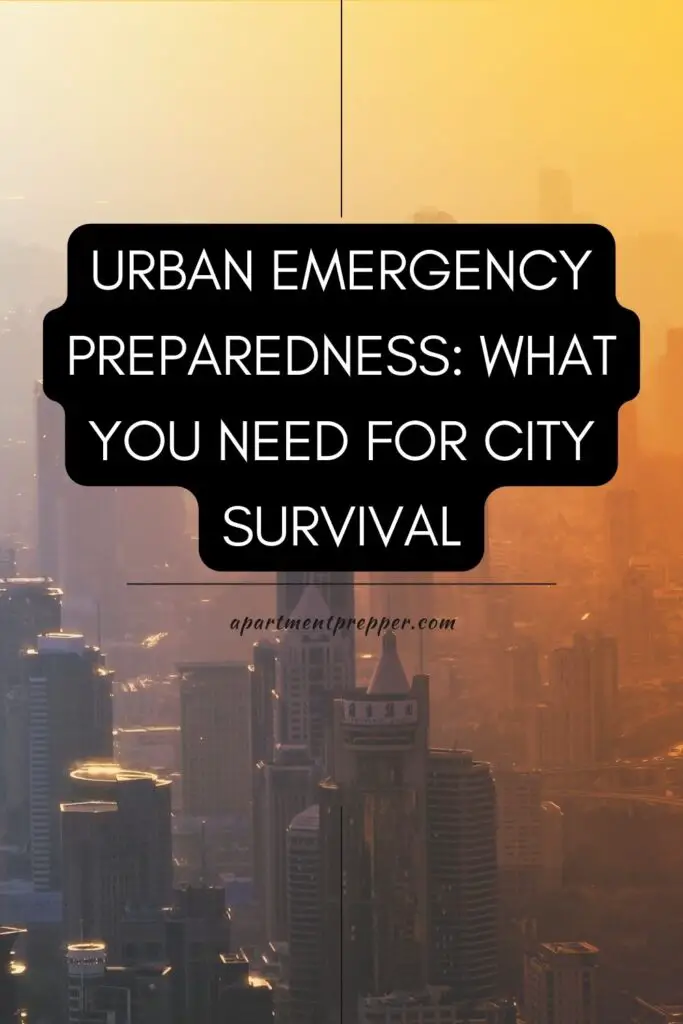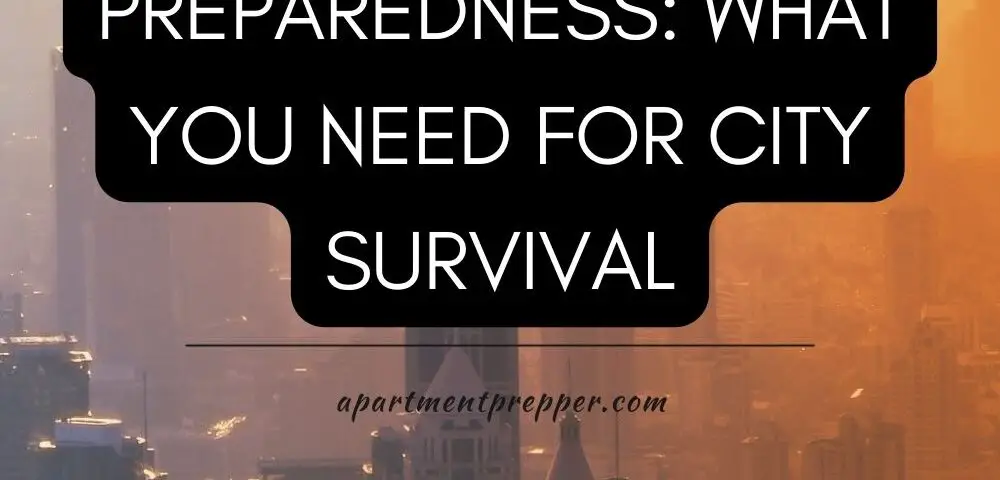Written by Bernie Carr
Living in a big city provides numerous conveniences, but it also comes with its own set of challenges, especially when it comes to emergencies. From power outages to natural disasters, urban dwellers need to be prepared for any unforeseen event. In this guide, we will explore essential tips and strategies to help you prep for emergencies in the city and ensure the safety of yourself and your loved ones.
Create a Personalized Emergency Plan
The first step in urban emergency preparedness is to create a personalized emergency plan tailored to your city lifestyle. Identify potential risks specific to your location, such as flooding, earthquakes, or power failures. As I write this, the city of Los Angeles is experiencing major flooding and mudslides due to heavy downpours. Each city has its own set of identifiable risks.
Build an Emergency Kit
Assemble a well-equipped emergency kit that can sustain you and your family for at least 72 hours. Include non-perishable food items, water, first aid supplies, essential medications, a flashlight, batteries, and important documents. Don’t forget to consider the unique needs of each family member, including pets, when assembling your kit.
Keep yourself updated on local news and weather conditions. Install emergency notification apps on your smartphone and subscribe to city alerts to receive real-time information. Staying informed about potential threats allows you to react promptly and make informed decisions to ensure your safety.
Know Your Evacuation Routes
Familiarize yourself with the evacuation routes in your city. Be aware of nearby shelters and safe zones, and plan multiple routes to reach these locations. In times of crisis, traffic congestion and road closures may occur, so having alternative routes is crucial for a swift and safe evacuation.
Secure Your Home
Urban emergencies often bring the risk of property damage. Secure heavy furniture, appliances, and other potential hazards in your home. Consider installing earthquake straps, reinforcing windows, and securing tall furniture to prevent injuries and damage during disasters.
Consider Self Defense
Think about what you can do in case you have to defend yourself. This is a strictly personal choice. Some apartment dwellers have several layers of protection. Others prefer strictly non-lethal ways to protect themselves such as pepper spray. Regardless of your chosen methods, you need to learn how to use your weapon. Besides knowing how to use your weapon you need to have it close to you when the time comes that you need it.
Develop Basic Survival Skills
Having basic survival skills can be invaluable in urban emergencies. Learn essential skills such as first aid, CPR, and basic self-defense techniques. These skills can make a significant difference in your ability to protect yourself and others during a crisis.
Establish a Support Network
Building a support network within your community is good to have for urban emergency preparedness. Connect with neighbors, join local emergency response groups, and participate in community drills or training sessions. Collaborating with others enhances your ability to respond effectively during emergencies.
Invest in Emergency Communication Tools
In the event of a widespread emergency, communication systems may be compromised. Consider investing in alternative communication tools such as two-way radios, satellite phones, or emergency communication apps that can function without traditional cellular networks. Establish communication strategies with family members and decide on meeting points in case you are separated during an emergency.
Practice Regular Drills
Regularly practicing emergency drills with your family ensures that everyone is familiar with the emergency plan and knows what to do in various scenarios. Conduct fire drills, evacuation drills, and practice using emergency equipment. This preparation can help reduce panic and improve response times during an actual emergency.
Conclusion
In conclusion, urban emergency preparedness is a critical aspect of city living. By creating a personalized emergency plan, building an emergency kit, staying informed, securing your home, and developing essential skills, you can enhance your ability to navigate and survive urban emergencies. Remember that being proactive and well-prepared is the key to ensuring the safety and well-being of yourself and your loved ones in times of crisis. Stay informed, stay ready, and stay safe.
We are an affiliate of Amazon.com, which means we received a small commission if you click through one of our Amazon links when you shop, at totally no cost to you. This helps keep the lights on at the blog. Thanks!
About the author
Bernie Carr is the founder of Apartment Prepper. She has written several books including the best-selling Prepper’s Pocket Guide, Jake and Miller’s Big Adventure, The Penny-Pinching Prepper and How to Prepare for Most Emergencies on a $50 a Month Budget. Bernie’s latest e-book, FRUGAL DIY has just been released on Amazon. Her work appears in sites such as the Allstate Blog and Clark.com, as well as print magazines such as Backwoods Survival Guide and Prepper Survival Guide. She has been featured in national publications such as Fox Business and Popular Mechanics. Learn more about Bernie here.
FB: https://www.facebook.com/apartmentprepper
Instagram: https://www.instagram.com/apartmentpreppers/
Twitter: https://twitter.com/AptPrepper
YouTube: https://www.youtube.com/channel/UC7vOtdbo-wiBeBxD6puCr1Q
Patreon: https://patreon.com/apartmentprepper
Pinterest: https://www.pinterest.com/aptprepper/
Today’s societal climate not supportive of prepping. With your help, we can keep bringing you content that is often suppressed. Help keep Apartment Prepper alive.
Join me on Patreon for ad-free content.

Or Help out via Paypal



